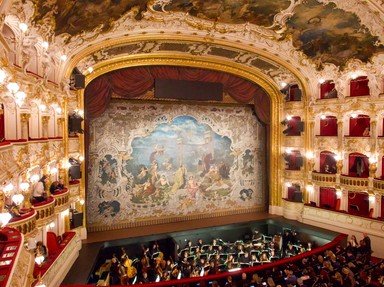Quiz Answer Key and Fun Facts
1. Which historical figure was an embodiment of Romantic ideals and led Europe away from Rationalism?
2. Which period of history could Romanticism BEST be said to be a return to?
3. Georg Wilhelm Friedrich Hegel (1770-1832) built on the ideas of Kant and provided some of the philosophical foundations for Romanticism. What did his theory of dialectics posit?
4. August Wilhelm Schlegel (1767-1845) was a critic and essayist who helped formulate Romantic theory. Did he believe in adherence to the Neoclassical rules of dramaturgy?
5. Which of these philosophical statements is LEAST likely to have come from a Romantic?
6. Which of these artistic elements is LEAST likely to be found in a Romantic drama?
7. Edmund Rostand's "Cyrano de Bergerac" (1897) is possibly the most successful play of the Romantic period. In it, the title character helps a friend woo Roxane because he fears himself too ugly to be worth her love. With which of his own features did Cyrano find fault?
8. Romantics believed that Nature could be fully comprehended.
9. A Romantic hero would MOST likely be what?
10. Romantics accepted subjectivity as a necessary condition of how humans experienced the world.
Source: Author
rj211
This quiz was reviewed by FunTrivia editor
agony before going online.
Any errors found in FunTrivia content are routinely corrected through our feedback system.

